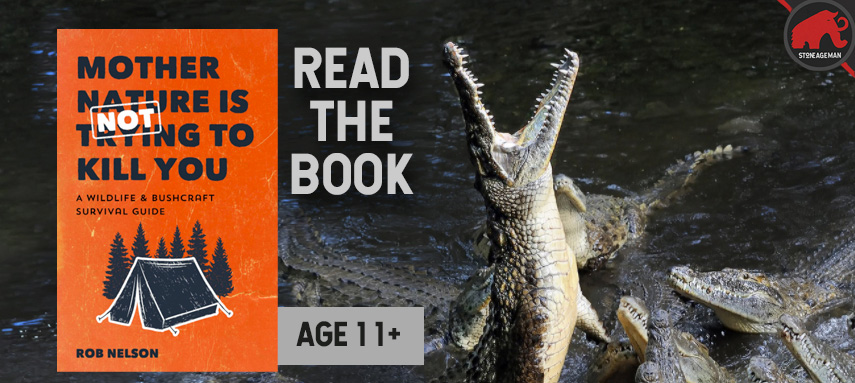The Rule of 3’s: Basic Survival Knowledge

Trivia time! What is the most important thing to do in a survival situation? I’ll give you a hint, it’s not related to calling for help on your cell phone – but boy or boy would that save you if you had some cell reception. Plus, let’s face it, if that’s available, use that.
I’m talking about basic survival 101 here. Deciding what you can and should do often comes down to priorities. The rule of 3’s is something that is taught by instructors around the world and is a good way to start thinking about what’s really important if you’re stranded in the woods. It goes something like this.
You can live about 3 minutes without oxygen:
You can last 3 hours without proper warmth and shelter.
You can survive only about 3 days without water
You can survive three weeks without food
3 months without rescue or human interaction
Let’s also remember this is more of a guideline than hard and fast rules. Anyone who’s ever looked up the world record breath hold will know it’s far longer than 3 minutes. Plus, if you’re walking around a nice fall day somewhere, you can go way more than 3-4 hours without a shelter to protect you from the elements.
The point of this is that it makes you prioritize what you’re going to do first. First thing is to always make some shelter and a warm place to be. Then look for water. Only after that is taken care of, should you start finding food. Believe it or not, but that is one of the last things you should worry about.
Now, let’s go into each in more detail just incase you’re really curoius.
3 Minutes without Air
Basically with 30-180 seconds of oxygen deprivation in the brain you’ll lose consciousness. At about 60 seconds your brain cells start to dye. At three minutes, neurons suffer more extensive damage and long term problems really become likely. At ten minutes even if the brain is alive lasting brain damage is almost a certainty. At 15 minutes, it’s almost impossible to survive. However, some of this changes with cold.
For example, people have been retrieved from cold water drowning accidents 40 minutes after the incident and have recovered without brain damage. This because cold temperatures slow the heartbeat. The body responds by also redistributing the blood flow towards the organs that need most of the blood and oxygen – the heart, lungs and brain.
3 Hours Without Shelter
How long do you think you can survive in an icy cold lake before you loose consciousness? The answer, according to Minnesota doctors is only around 15-30 minutes, depending on just how cold it is. I present this, because it may be the extreme situation here. It seems to break the rule.
If instead you’re in a comfortable 70 degree location, you’re likely to have all the time you need. Still, the importance of shelter is that you need to keep you body temperature up so that you can perform the other important tasks, like getting water, food, and rescue.
3 Days Without Water
According to a recent study, water makes up 60 percent of an individual’s weight, and loosing as much as three percent of that weight in water will lead to dehydration.
And dehydration is what we’re really worried about when we don’t have water. Dehydration can happen quickly. That causes you to get thirsty, can cause sluggishness and fatigue. In the end, it will result in organ failure and death.
So if you ask, how long can the average person last without water, the answer is about 3 days. The following factors, however, will change this slightly.
- The person’s age
- How active they are
- Their overall health
- Their body type – height and weight
- Their sex
Don’t forget that drinking pure stream water isn’t the only way you can rehydrate yourself. Many foods are great at rehydrating your body. Fruits, berries, and veggies for instance are fantastic. Stay away from extremely salty foods though, because they’ll actually dehydrate you more. That also means, don’t drink salt water!

